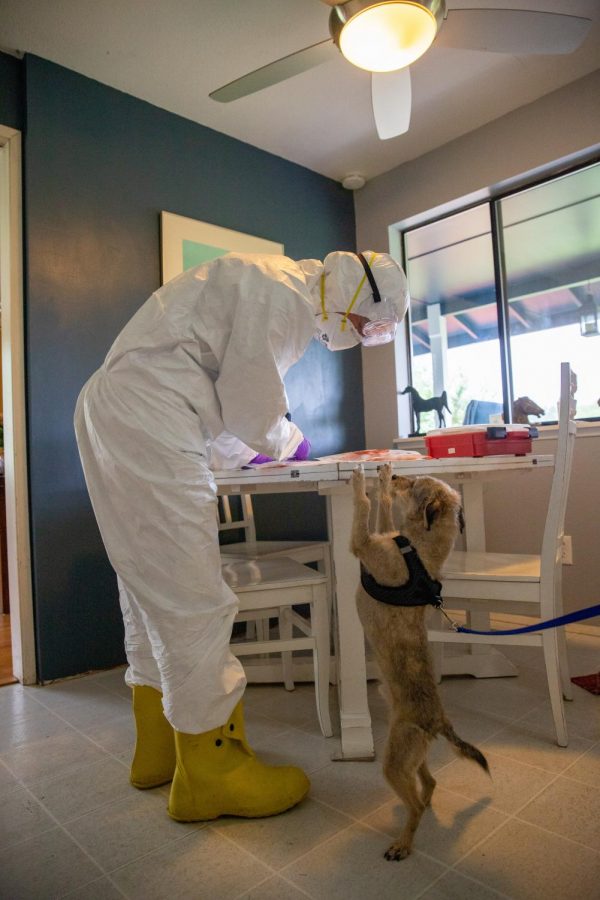Researchers study how often household pets contract COVID-19
Animals do not spread infection to humans; tests do not come from human supply
COURTESY OF GEMINA GARLAND-LEWIS
Household pets like dogs, cats, hamsters and ferrets are being tested for COVID-19. In order to be tested, the animals have to be from a household where at least one person has tested positive for the virus.
June 5, 2020
WSU researchers, in cooperation with University of Washington’s Center for One Health Research, are studying how often household pets can contract COVID-19.
Katie Kuehl, veterinarian and shelter medicine clinical instructor in WSU’s College of Veterinary Medicine, said researchers are testing dogs, cats, hamsters and ferrets in households where at least one person tested positive for COVID-19. The study is limited to those species because COVID-19 does not appear to transmit to other types of animals, such as birds, based on previous laboratory research.
Kuehl said they have visited about a dozen homes so far, some with multiple household animals.
“So far, all of the animals that we have tested as part of our study have been negative for live virus,” Kuehl said.
Researchers collect swabs from nasal passages and the back of the throat of participating pets, UW Research Coordinator Vickie Ramirez said. They also collect fecal swabs, because viral particles can be released in different parts of the body.
The swabs are analyzed using polymerase chain reaction PCR, Kuehl said. PCR is a method that involves making many copies of a specific genetic sequence to test for particles of the virus.
They are also collecting blood samples from animals, Ramirez said. A test for animal antibodies is currently unavailable, so the blood samples are being stored until one is.
Kuehl said antibody testing is the best way to determine infection rates. This is because an animal might have a negative PCR test if it is no longer releasing, or “shedding,” viral particles into the environment. However, the animal might have a positive antibody test.
“The reason we want to know this is because we want to provide better guidance for families to protect their animal family members and themselves,” Kuehl said.
There is no evidence of animal to human transmission, Kuehl said. However, there does appear to be some transmission between animals, which could be relevant in an animal shelter or laboratory setting.
“It’s really important that people continue to treat their pets just like they would any other family member, which means social distancing,” Kuehl said. “Even though we know pets are a good support when you’re not feeling well, we feel like it is probably safest for the pets at this point if they are kept away from affected individuals.”
All tests for this study are done at the Washington Animal Disease Diagnostic Laboratory, which is on the WSU Pullman campus. Animal tests are separate from human tests and do not decrease the already short supply of human tests available, Kuehl said.
Pets in King County and Yakima Valley are eligible to participate in the study, as long as there is at least one person in the household who tested positive for COVID-19, Ramirez said.























